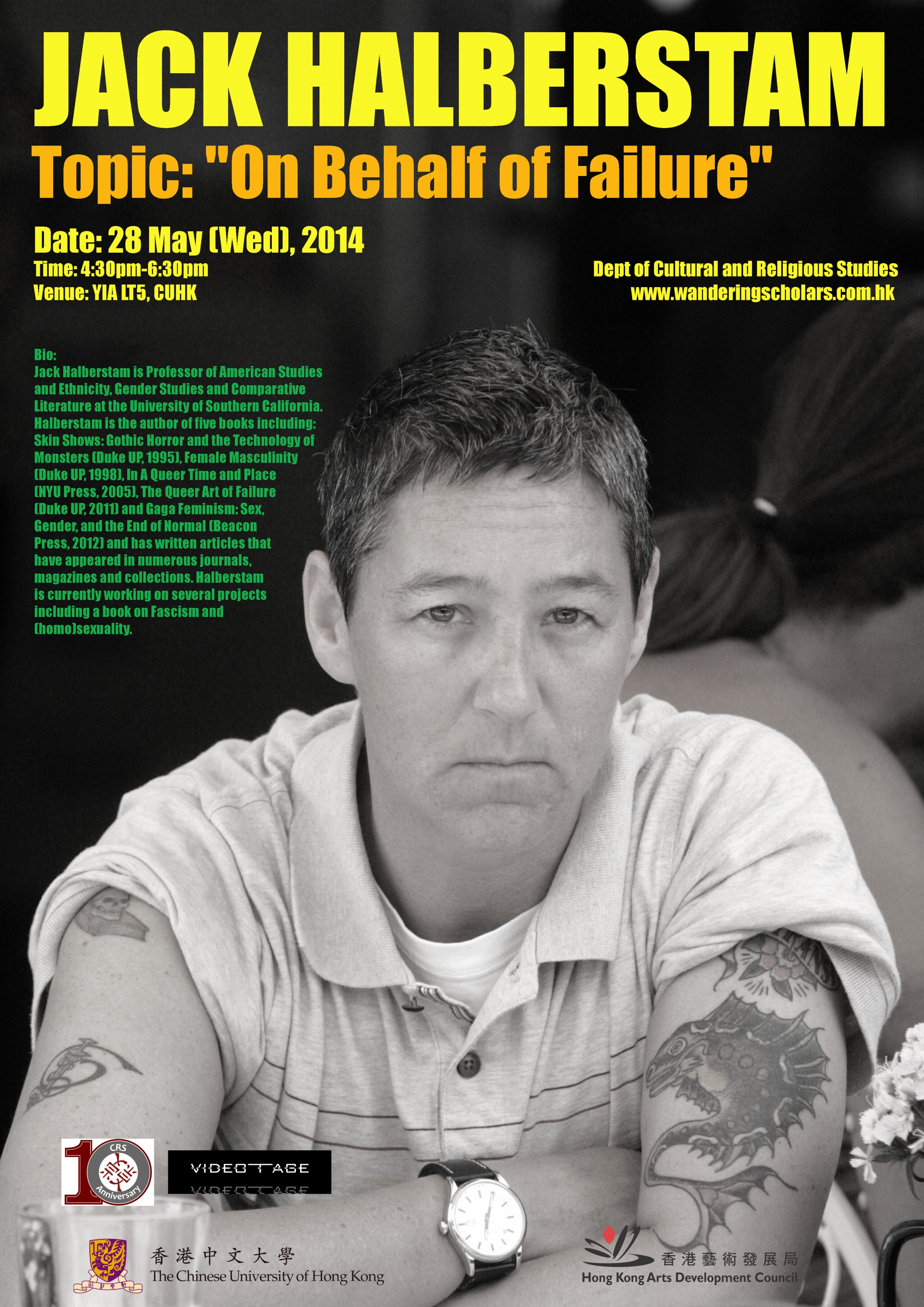Events
The Department of Cultural and Religious Studies 10th Anniversary Lecture Series 3: On Behalf of Failure
28 May 2014
4:30pm – 6:00pm
YIA LT5
Jack Halberstam
Jack (Judith) Halberstam is Professor of American Studies and Ethnicity, Gender Studies and Comparative Literature at the University of Southern California. Halberstam is the author of five books including: Skin Shows: Gothic Horror and the Technology of Monsters (Duke UP, 1995), Female Masculinity (Duke UP, 1998), In A Queer Time and Place (NYU Press, 2005), The Queer Art of Failure (Duke UP, 2011) and Gaga Feminism: Sex, Gender, and the End of Normal (Beacon Press, 2012) and has written articles that have appeared in numerous journals, magazines and collections. Halberstam is currently working on several projects including a book on Fascism and (homo)sexuality.
Admission is free. All are welcome.
Visit https://www.wanderingscholars.com.hk for details.
For free registration, visit https://docs.google.com/forms/d/1vQNiD6TGpcHhe3lwNgJN9-zMLY-UwkHixZGQDr6MR6o/viewform
Miss Lina Chan (Tel: 3943-3726; email: linachan@cuhk.edu.hk)
Here is an intro to the talk by Prof. Jack Halberstam. Here today, I want to argue “on behalf of failure” and on behalf very specifically of the queerness of failure. So, why would we want to argue that failure is queer? Why argue on behalf of failure? How might we make a case for failure that does not reinstate the zero-sum logics of success? What are the politics of failure and how might failure offer us a methodology for queer studies? Does failure offer an epistemological framework that allows for different distributions of merit, value and relevance? Should we, to quote Beckett, fail well and fail often and if so, how? Without proposing to answer all of these questions, I do want to take a stab at a few of them as a way of beginning a conversation here at this meandering, wandering conference about failure, its uses, its abuses, the angle it offers us on human action and inaction and the potential dangers of thinking with and through failure as they are unevenly distributed across populations. So, I will proceed through about 3 sections each framed by a question, explained by way of an example and summarized in relation to some counter-intuitive lessons about life, loss and the exquisite texture of losing.





